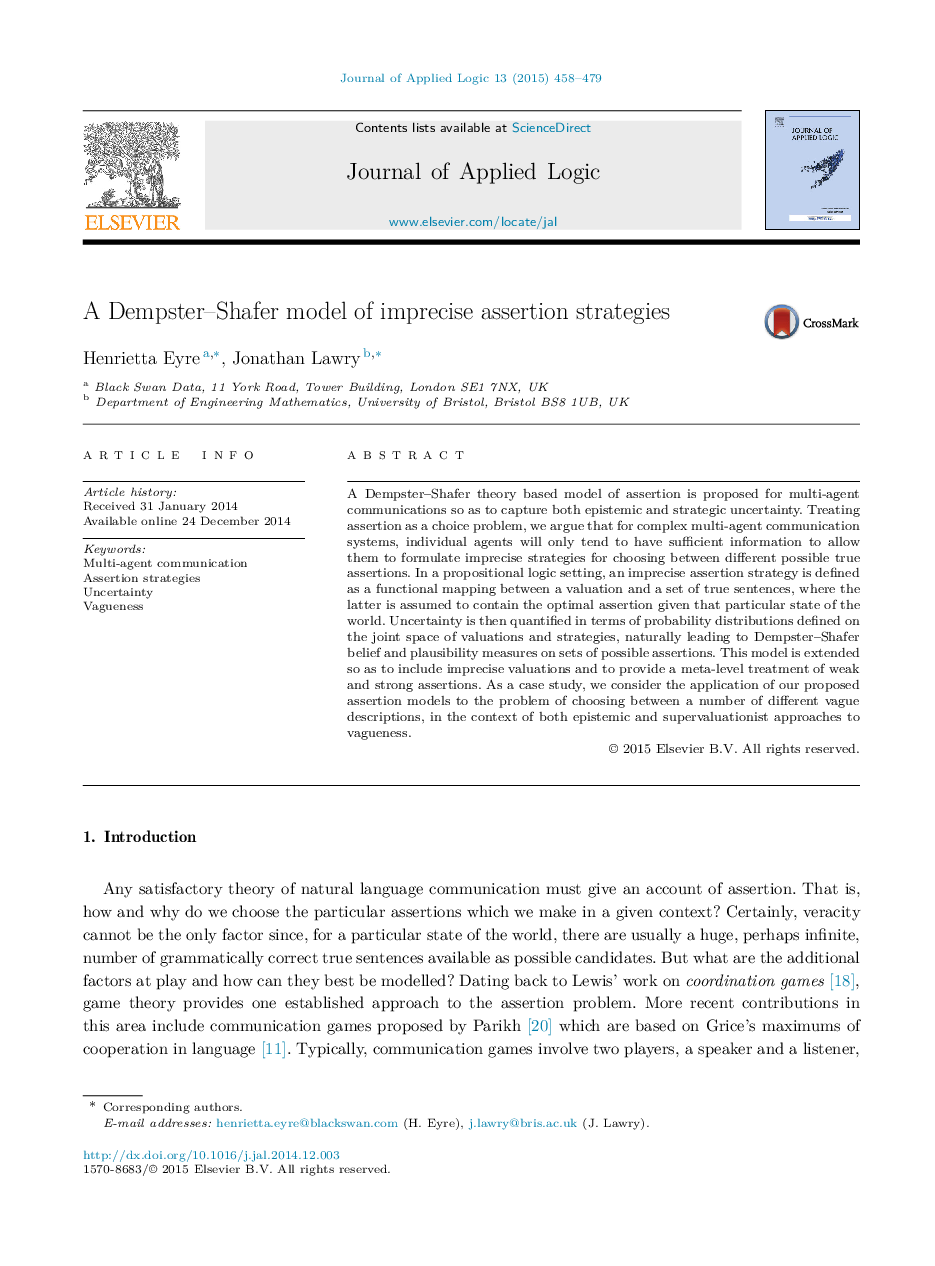| کد مقاله | کد نشریه | سال انتشار | مقاله انگلیسی | نسخه تمام متن |
|---|---|---|---|---|
| 4662857 | 1345200 | 2015 | 22 صفحه PDF | دانلود رایگان |
A Dempster–Shafer theory based model of assertion is proposed for multi-agent communications so as to capture both epistemic and strategic uncertainty. Treating assertion as a choice problem, we argue that for complex multi-agent communication systems, individual agents will only tend to have sufficient information to allow them to formulate imprecise strategies for choosing between different possible true assertions. In a propositional logic setting, an imprecise assertion strategy is defined as a functional mapping between a valuation and a set of true sentences, where the latter is assumed to contain the optimal assertion given that particular state of the world. Uncertainty is then quantified in terms of probability distributions defined on the joint space of valuations and strategies, naturally leading to Dempster–Shafer belief and plausibility measures on sets of possible assertions. This model is extended so as to include imprecise valuations and to provide a meta-level treatment of weak and strong assertions. As a case study, we consider the application of our proposed assertion models to the problem of choosing between a number of different vague descriptions, in the context of both epistemic and supervaluationist approaches to vagueness.
Journal: Journal of Applied Logic - Volume 13, Issue 4, Part 1, December 2015, Pages 458–479
